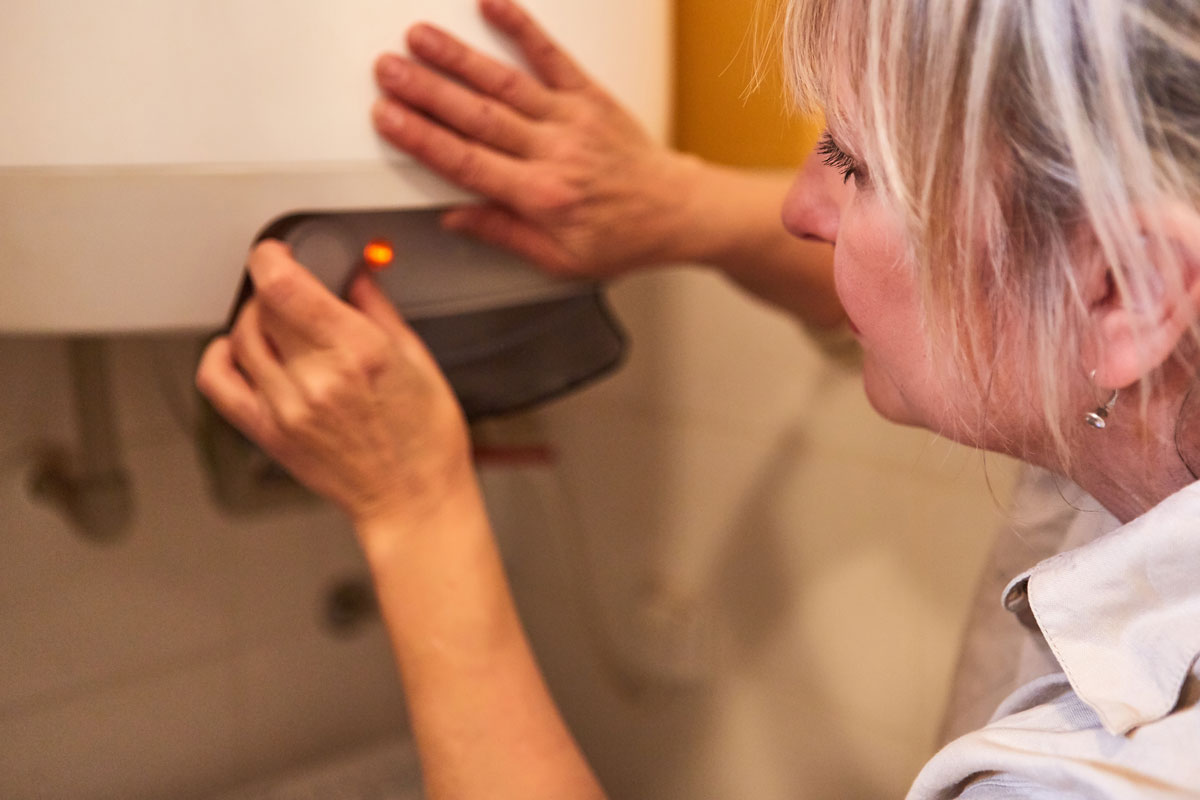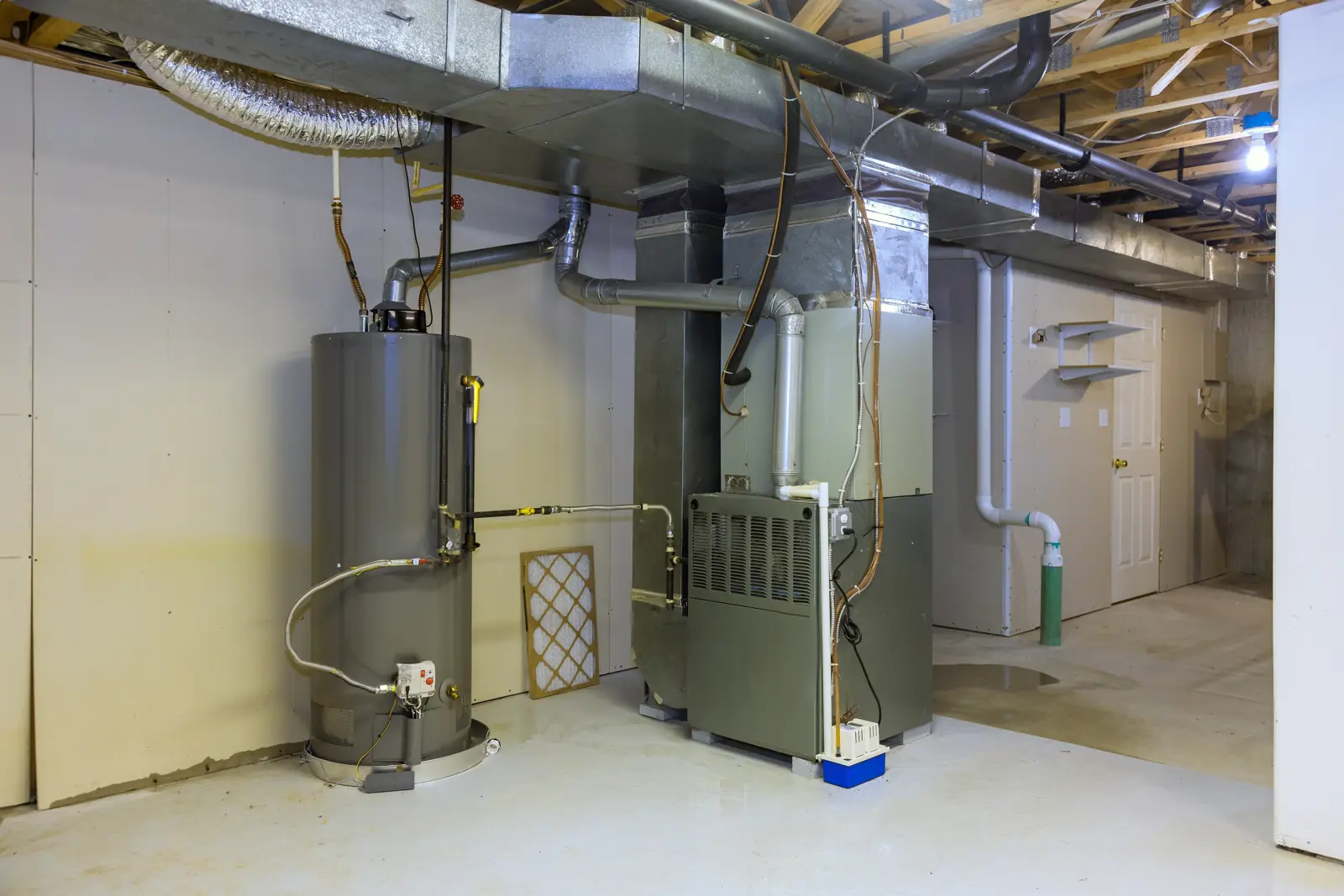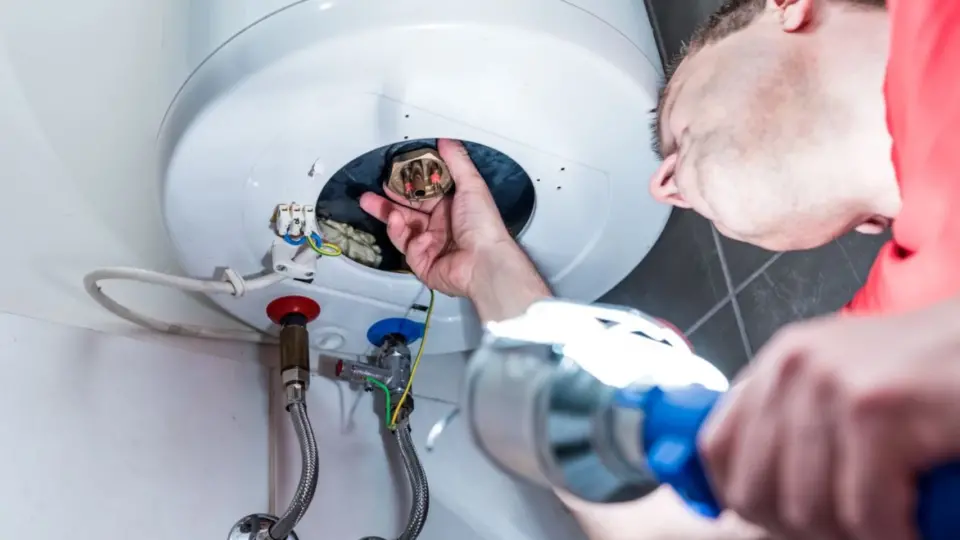If you’ve got a tankless water heater, you might be surprised to know that it could have more of an impact on your water quality than you realize. Most people think a water heater is just for getting hot water, but there’s a connection between your system and the water you use every day.
Over time, minerals and debris can build up in your tankless unit, and that buildup might affect how your water tastes, feels, and even how it impacts your pipes. When things aren’t running smoothly, the water quality in your home could take a hit.
How does a tankless water heater affect water quality?
A tankless water heater can affect water quality in several ways, particularly in areas with hard water. Unlike traditional water heaters that store hot water, tankless units heat water on demand, which means they are more susceptible to mineral buildup inside the unit.
In hard water areas, minerals like calcium and magnesium can accumulate in the heat exchanger, leading to scaling. This buildup can reduce the efficiency of the unit, increase energy consumption, and shorten its lifespan. Over time, it may even affect water quality by introducing sediment or impurities into the hot water supply.
A tankless water heater can be impacted by water quality regarding flow rate. If the water has a high level of minerals or impurities, it can cause clogging in the pipes leading to the unit, potentially affecting the water flow. This could result in inconsistent water temperature or slower heating times.
To mitigate these effects, it’s important to use water softeners or regularly descale the system to keep the heater and the water supply clean and functioning properly. Ensuring good water quality can extend the lifespan of the tankless water heater and provide better, cleaner hot water for your home.
Can a tankless water heater reduce hard water issues?
A tankless water heater itself does not reduce hard water issues, but it can be affected by hard water. Hard water, which contains high levels of minerals like calcium and magnesium, can cause scale buildup inside the unit’s heat exchanger over time.
This mineral buildup reduces the water heater’s efficiency, increases energy consumption, and can shorten the unit’s lifespan. However, while the tankless heater doesn’t directly address hard water, there are steps you can take to prevent or minimize the effects:
- Install a Water Softener: A water softener system can be installed in your home to treat hard water before it enters the tankless water heater. The softener removes calcium and magnesium, replacing them with sodium or potassium ions, which helps prevent scale buildup in the heater and the rest of your plumbing system.
- Regular Maintenance and Descaling: Even with a water softener, regular maintenance is essential on the tankless water heater. Periodic descaling helps remove mineral buildup in the system, ensuring it operates efficiently and extends its lifespan.
While a tankless water heater doesn’t directly solve hard water issues, incorporating water softening systems and regular maintenance can significantly reduce the negative impact of hard water on both the water heater and your home’s plumbing system.
What role does water filtration play in tankless water heater performance?
Water filtration plays an important role in the performance and longevity of a tankless water heater by improving water quality and preventing the buildup of minerals and contaminants. Here’s how filtration impacts the system:
- Prevents Mineral Buildup: In areas with hard water, minerals like calcium and magnesium can accumulate inside the heat exchanger of a tankless water heater, leading to scaling. Over time, this scaling can reduce the efficiency of the unit, increase energy consumption, and shorten its lifespan. A water filtration system, especially one that includes a water softener, helps reduce the hardness of the water by removing these minerals before they reach the heater, thereby preventing scale buildup.
- Protects the Heat Exchanger: A clean water supply reduces the risk of clogging the internal components of the tankless water heater. Filtration can remove debris, sediment, and other contaminants that could obstruct water flow, improve the efficiency of the heat exchanger, and prevent wear and tear on the system.
- Improves Water Quality: Filtration removes impurities, such as chlorine, heavy metals, and sediment, that may affect the taste and quality of the water. While this doesn’t directly impact the heater’s performance, it ensures that you get clean, safe, and good-tasting hot water, which is essential for overall satisfaction with the system.
- Reduces Maintenance Needs: With fewer contaminants in the water, the tankless water heater needs less frequent descaling or maintenance. This makes the system easier to maintain and helps it perform at its best for a longer time.
Water filtration is crucial for maintaining the performance of a tankless water heater by preventing mineral buildup, protecting internal components, and improving overall water quality. Regular filtration and periodic maintenance can ensure optimal functionality and extend the unit’s life.
Does a tankless water heater improve the taste of tap water?
A tankless water heater does not directly improve the taste of tap water. However, it may indirectly affect water quality, depending on the type of water heater and the condition of the water supply.
Tankless water heaters heat water on demand, and because they don’t store hot water like traditional water heaters, there is less opportunity for bacteria or other contaminants to grow in stagnant water. This could result in a fresher taste, especially in homes with older tank-style water heaters where water can sit for long periods.
However, the taste of tap water is primarily influenced by factors such as mineral content (hard water), chlorine levels, or sediment in the water supply. A water filtration system would be more effective in truly improving the taste of tap water. Filtration systems can remove chlorine, heavy metals, sediments, and other impurities, often the main causes of undesirable taste or odors in tap water.
While a tankless water heater may offer some indirect benefits for water quality by providing on-demand heating and preventing stagnation, it is not designed to improve the taste of tap water. A dedicated water filtration system would be the best option for improving taste and water quality.
Improve Water Quality with a Tankless Water Heater
Improve water quality with a tankless water heater by us here at Hi-Desert Plumbing. Tankless water heaters provide on-demand hot water and contribute to cleaner, fresher water by eliminating the risks of stagnant water that can occur with traditional tank systems. A tankless water heater ensures you get high-quality water every time you turn on the tap by reducing the chances of mineral buildup and bacteria growth.
Let our expert team help you install or maintain a tankless system that improves your water’s efficiency and cleanliness. Contact us today for more information!



